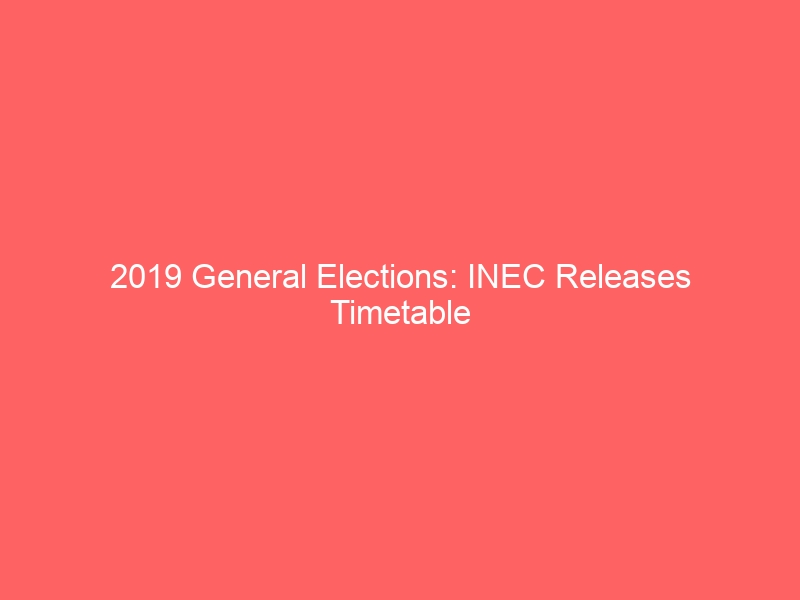The Independent National Electoral Commission (INEC) Chairman, Prof. Mahmood Yakubu, has released the 2019 General Elections timetable in Abuja during a press conference recently.
According to the INEC Chairman, the early release is aimed at engendering certainty in Nigeria’s electoral calendar adding that it would enable all stakeholders to prepare adequately for elections as obtains in developing democracies.
Prof. Yakubu said the notice of election would be communicated on August 17, 2018 in line with Section 30(1) of the Electoral Act 2010 which provides that the notice of election be made not later than 90 days before the election.
INEC fixed Presidential and National Assembly primaries for August 18, 2018, and scheduled election campaigns to begin on November 18, 2018.
Governorship and House of Assembly election campaigns will begin on December 1, 2018, while Presidential and National Assembly elections will take place on February 16, 2019.
“The campaigns of political parties for Presidential and National Assembly elections should begin by November 18, 2018 while that of Governorship and House of Assembly is December 1, 2018.”
Governorship, State House of Assembly and Federal Capital Territory elections will hold on March 2, 2019.
He said the conduct of party primaries including resolution of disputes arising from the primaries would take place between August 18 and October 7, 2018.
The INEC chairman said all political parties should collect forms for all elections latest by August 24, 2018, and that the last day for the submission of nomination forms by political parties for the Presidential and National Assembly is December 3, 2018 while for governorship and House of Assembly is December 17.
Regarding the spending limit for presidential candidates, Prof. Yakubu said the Electoral Act was clear on the matter which “states that no presidential candidate can spend over N1bn, no governorship candidate can spend over N200m and no senatorial candidate can spend over N40m.”
The same Act further states that corporate bodies cannot donate money to political parties and no private individual can donate more than N1m to any aspirant or candidate.
“The benchmark for financing campaigns is a matter of the Electoral Act. The provisions in the Act have not changed for all categories of candidates contesting election and we will stick to it,” he said.
The INEC chairman also said efforts were being made to increase the collection of Permanent Voter Cards, adding that a portal had been created to notify registered voters when their PVCs were ready.












